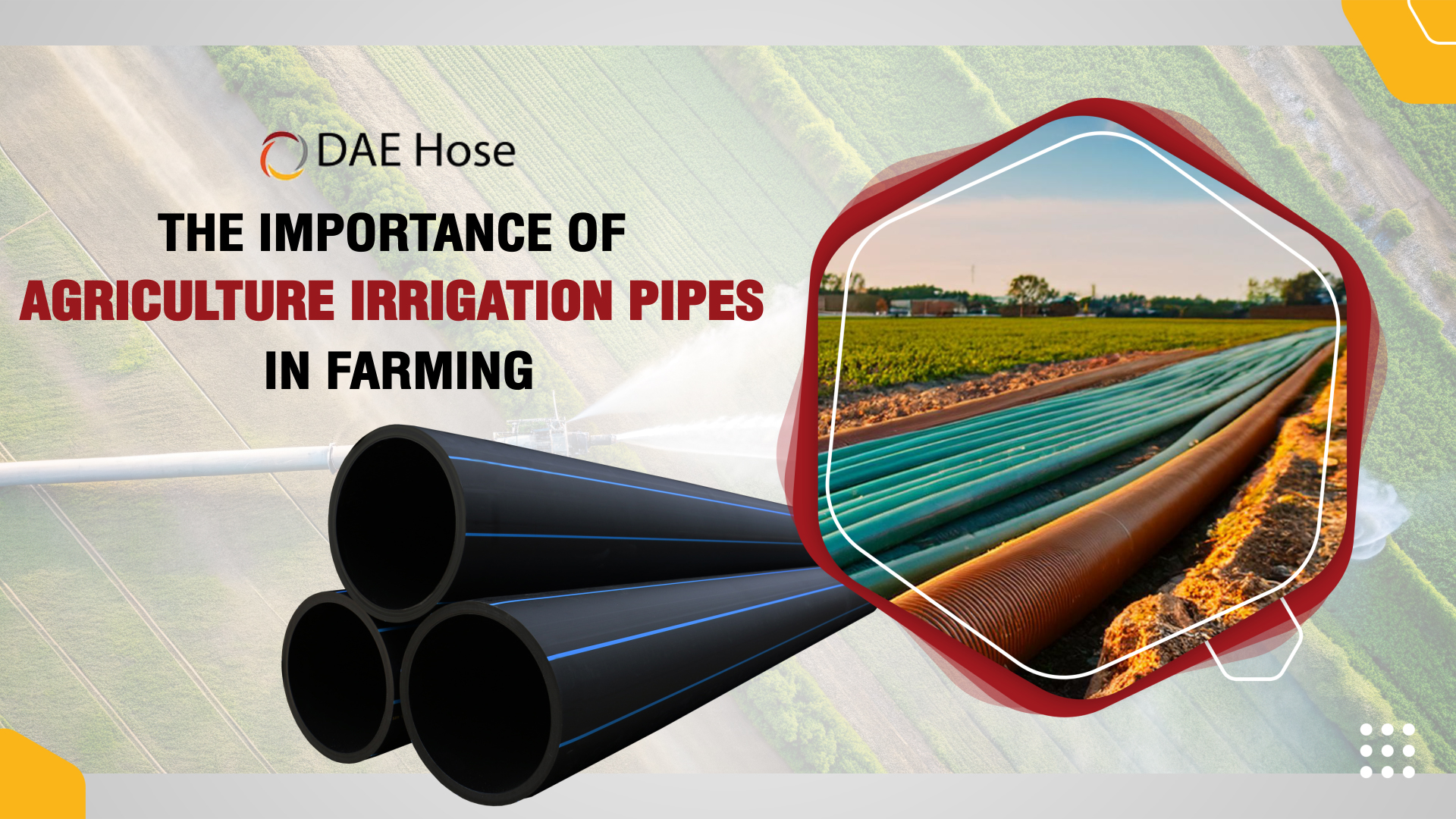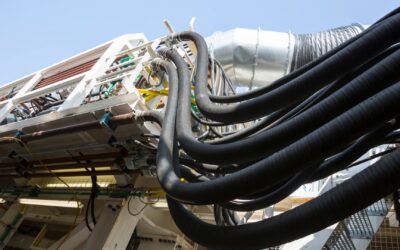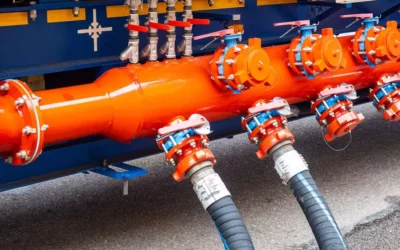Sustainable farming is essential to preserving our natural resources while feeding a growing global population. One of the key components of sustainable farming is efficient water management, as agriculture accounts for a significant percentage of global water use. Efficient irrigation systems, particularly the use of advanced agriculture irrigation pipes, play a vital role in optimizing water distribution and ensuring crops get the right amount of water while minimizing waste. Agriculture irrigation pipes are the backbone of these systems, delivering water efficiently and supporting sustainable farming practices.
Overview of Agriculture Irrigation Systems

Irrigation systems are designed to supply water to crops in a controlled and efficient manner. Several types of irrigation systems exist, each with unique characteristics suited to different types of crops and environments.
- Drip Irrigation: This system delivers water directly to the root zone of plants through small, strategically placed tubes. It minimizes water waste by targeting only the areas that need it.
- Sprinkler Irrigation: Water is distributed through a system of farm irrigation pipes and sprayed over crops in a way that mimics natural rainfall. This system is ideal for large fields.
- Surface Irrigation: Water is delivered across the surface of the soil, allowing it to seep into the ground gradually. While effective in some settings, it can lead to water loss through evaporation and runoff.
In all these systems, Irrigation tubing plays a critical role in distributing water to crops. Agriculture irrigation pipes differ from other agricultural infrastructure due to their specific design for water management, ensuring that the water is transported efficiently from the source to the crops.
The Role of Irrigation Pipes in Water Efficiency

Water efficiency is a key concern in sustainable farming, and Watering pipes are central to achieving it.
- Maximizing Water Use:
Watering pipe help minimize water waste by delivering water exactly where it is needed, reducing the chances of evaporation or runoff. Materials used in agriculture irrigation pipes, such as PVC (Polyvinyl Chloride) and HDPE (High-Density Polyethylene), are durable and designed for efficiency. PVC is widely used for its cost-effectiveness, while HDPE offers excellent durability and flexibility, making it ideal for more demanding environments. - Reducing Water Loss:
Leaks and inefficiencies can lead to significant water loss, which is why leak-proof and durable irrigation pipes are critical. Advances in farm irrigation pipe technology have led to the development of pipes that improve water retention, ensuring that more water reaches the plants. Innovations such as drip-line pipes with built-in emitters further reduce the risk of leaks, allowing for more precise water distribution.
Supporting Soil Health with Proper Irrigation

Efficient irrigation is not only about providing water to crops but also about maintaining soil health.
- Prevention of Overwatering and Erosion:
Overwatering can lead to soil erosion and nutrient leaching, both of which degrade soil quality. It allows farmers to control the flow of water, ensuring that only the required amount is delivered to the crops. By preventing overwatering, pipes help protect the soil from erosion. - Balancing Moisture Levels:
Properly controlled farm irrigation pipes help maintain the ideal soil moisture levels necessary for healthy crop growth. This balance helps prevent the soil from becoming too dry or too saturated, leading to better yields and improved soil structure over time.
Enhancing Crop Productivity with Efficient Irrigation
One of the most direct benefits of effective irrigation is the improvement in crop productivity.
- Meeting Crop Water Demands:
Agriculture irrigation pipes ensure that crops receive the right amount of water at the right time, which is essential for healthy growth. Inconsistent watering can stress plants and reduce yields, while well-regulated water distribution promotes optimal growth. - Impact on Yields:
Research shows that efficient irrigation systems can significantly boost crop yields by ensuring that plants have consistent access to water. Farmers who invest in high-quality Watering pipes often see a noticeable improvement in productivity and profitability.
The Role of Water Distribution Pipes in Reducing Environmental Impact

Sustainable farming seeks to minimize environmental impact, and agriculture irrigation pipes play a crucial role in achieving this goal.
- Water Conservation:
Water distribution pipes contribute to water conservation efforts by delivering water directly to plants’ root zones and preventing wastage. This is particularly important in regions facing water scarcity. - Minimizing Runoff and Pollution:
Inefficient water distribution can lead to runoff, which may carry pesticides and fertilizers into nearby water bodies, causing pollution. Proper farmstead Irrigation hose reduce runoff by controlling water flow and delivering it precisely where needed, protecting local ecosystems.
Economic Benefits for Farmers
Investing in high-quality agriculture irrigation pipes also has significant economic advantages for farmers.
- Cost-Effectiveness of Watering pipe:
While setting up an irrigation system requires an initial investment, the long-term savings in water usage and increased crop yields far outweigh the costs. High-quality pipes last longer, reducing the need for frequent replacements. - Reducing Labor and Maintenance Costs:
Durable Watering pipes reduce the need for constant monitoring, repairs, and maintenance. Farmers can spend less time worrying about their water systems and more time focusing on other aspects of farming.
Innovative Irrigation Pipe Technologies for Sustainable Farming
Advancements in technology are transforming the way farmers use agriculture irrigation pipes.
- Smart Watering pipe:
Modern Water pipes can be integrated with sensors and automation systems, allowing farmers to monitor soil moisture and adjust water flow in real time. These smart systems help ensure that water is used efficiently and only when necessary. - Sustainable Materials:
As sustainability becomes a priority, many manufacturers are developing eco-friendly and recyclable farmstead watering pipe materials. These materials not only reduce the environmental impact of production but also contribute to a more circular economy in agriculture.
Future Trends in Irrigation Channel for Sustainable Farming
Looking ahead, Irrigation channel technology will continue to evolve to meet the challenges of sustainable farming.
- Adapting to Climate Change:
As weather patterns become more unpredictable, farmers need irrigation systems that can adapt quickly. Advanced agriculture irrigation pipes designed for flexibility and efficiency will help farmers manage water in changing conditions. - Focus on Precision Agriculture:
Precision agriculture is becoming more prevalent, and irrigation systems are a key component of this trend. With precise control over water distribution, the Irrigation channel will continue to play a central role in optimizing farm operations.
Conclusion
Agriculture irrigation pipes are essential to promoting sustainable farming practices by enhancing water efficiency, supporting soil health, improving crop productivity, and reducing environmental impact. As farming faces increasing challenges from climate change and water scarcity, the importance of advanced irrigation pipe systems will only grow. Farmers who adopt these modern systems will not only boost their productivity but also contribute to a more sustainable and resilient agricultural industry. Now is the time to explore innovative farmland Irrigation channel solutions to secure the future of farming.




